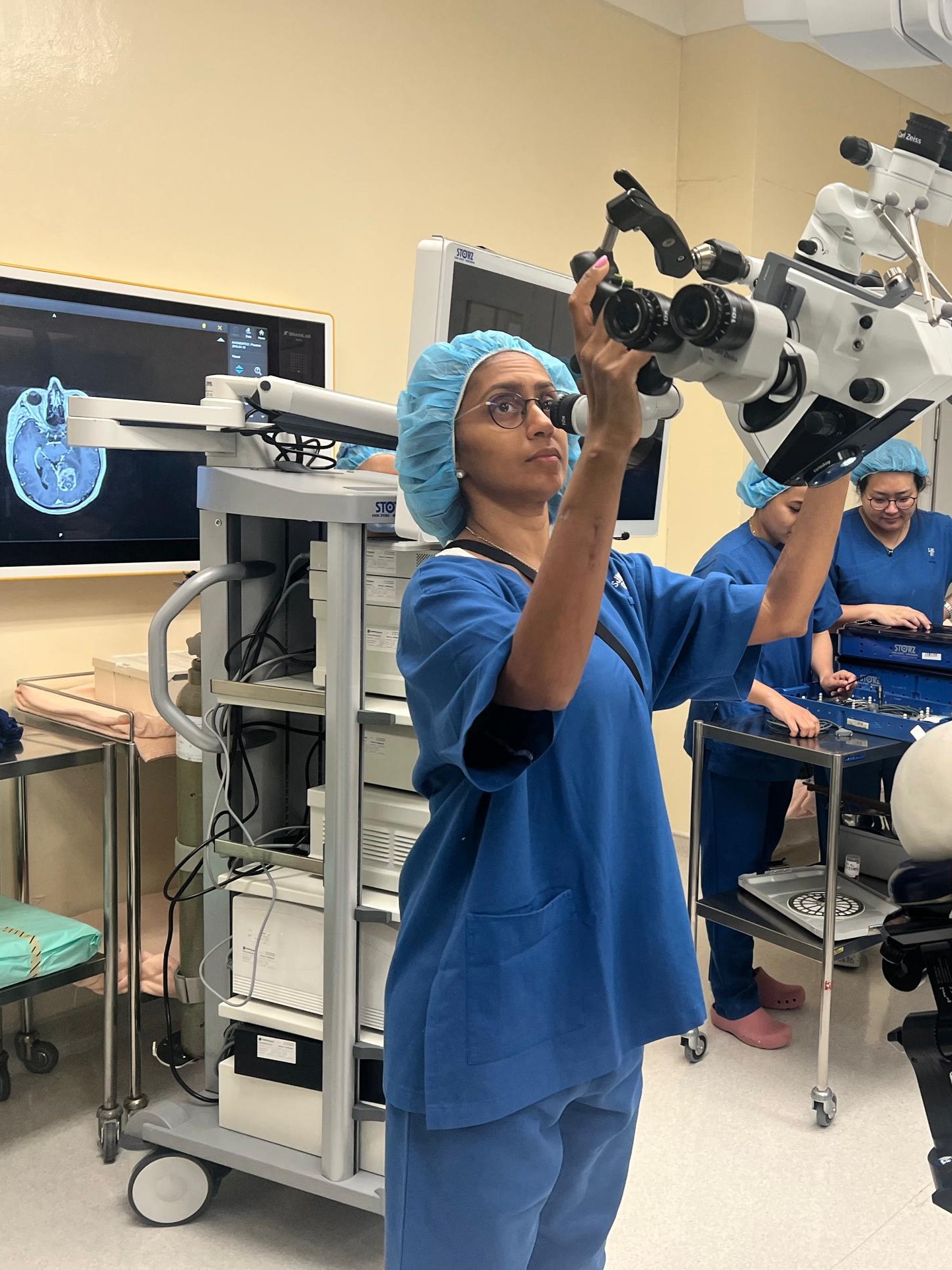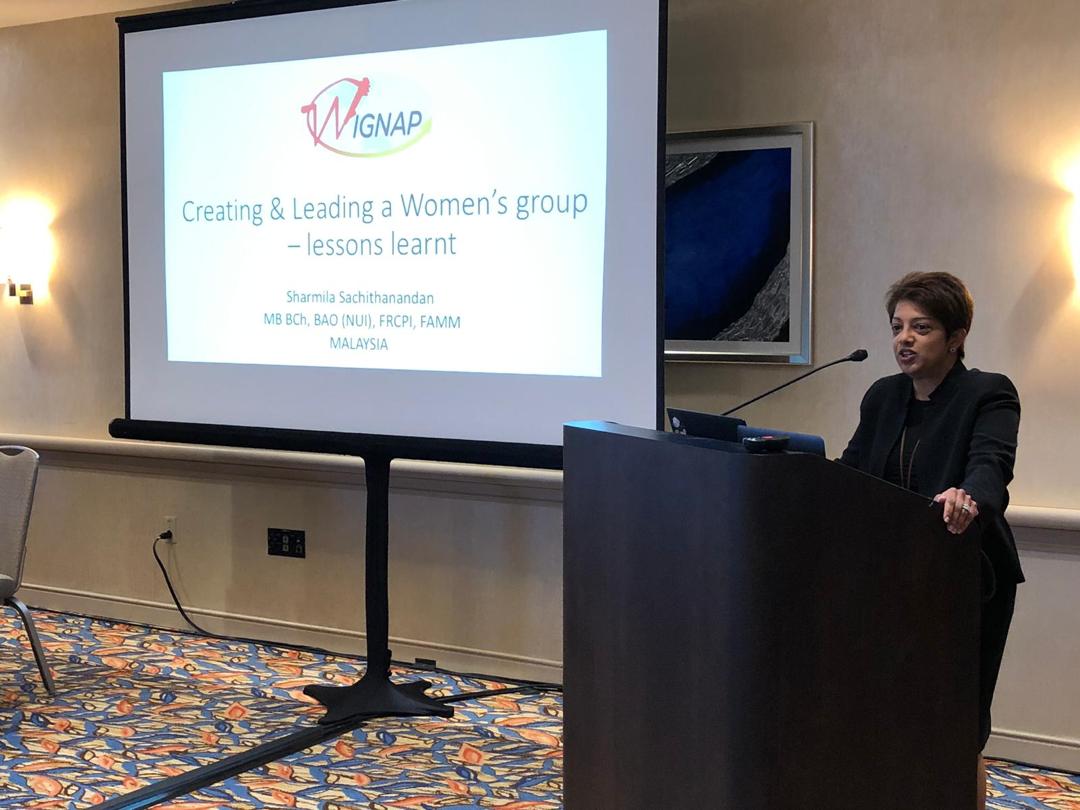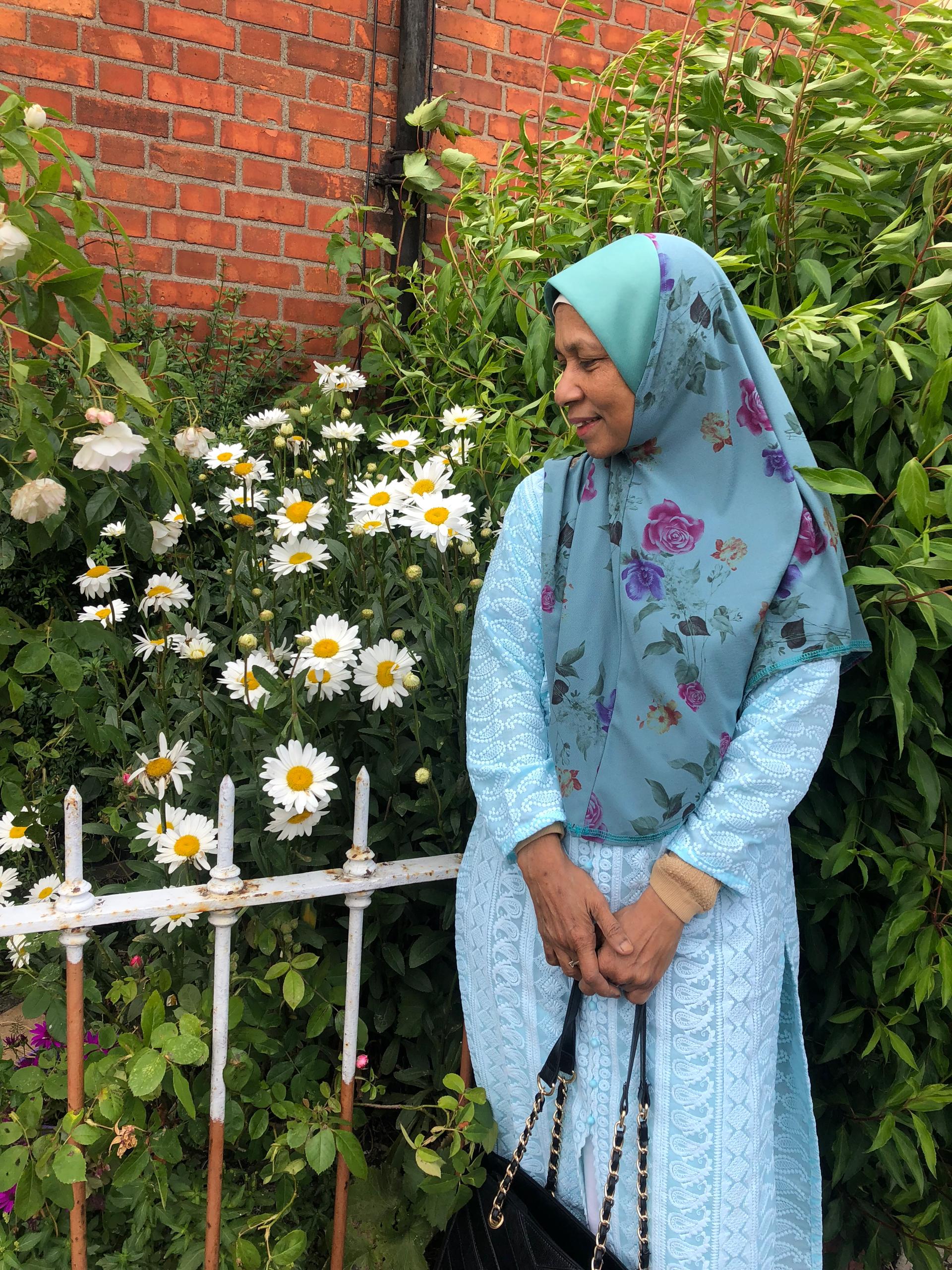Inspiring Women, Challenging Stereotypes, and Shaping Future Generations
In the world of medicine, where skill, dedication, and resilience define success, women continue to break barriers, redefine norms, and shape the future of healthcare. At Subang Jaya Medical Centre (SJMC), three extraordinary doctors – Dr. Jeyanthi Kulasegarah, a Consultant Ear, Nose and Throat (ENT) Surgeon; Datin Dr. Sharmila Sachithanandan, a Consultant Gastroenterologist; and Dr. Sofiah Ali, a Consultant Paediatrician and Paediatric Neurologist, stand as examples of the strength, innovation, and compassion that women bring to the medical field.

For Dr. Jeyanthi Kulasegarah, ENT is more than just a speciality; it is a passion fuelled by the resilience and optimism of her young patients.
Challenging Gender Stereotypes in Surgery
The surgical world, historically dominated by men, comes with its own set of stereotypes - women being seen as physically unsuited for surgery or less committed due to family responsibilities. Dr. Jeyanthi Kulasegarah has spent her career proving these misconceptions wrong.
“Surgery isn’t about gender. It’s about skill, endurance, and mindset,” she asserts. With two fellowships and a 16-year training journey behind her, she knows that success is about passion and perseverance, not physical strength. As the former Head of the ENT Department at Universiti Malaya, and holding positions in national medical societies, she exemplifies that women belong at every level of the medical profession.
Datin Dr. Sharmila has also encountered gender biases throughout her journey in gastroenterology, a speciality traditionally dominated by men. Early in her career, patients often assumed that only men could be doctors while women were seen as their assistants. But times are changing.
“There is a growing demand for female specialists, particularly in fields like gastroenterology, where female patients often feel more comfortable consulting a female doctor,” she shares.
Dr. Sofiah Ali echoes this sentiment in her work as a paediatric neurologist. She faced barriers early on, including the perception that neurology was male-dominated. But her mantra, “If others can do it, I can do it too, and I will do it to my best,” carried her through the most challenging moments of her career.

“Medicine is a marathon, not a sprint,” says Datin Dr. Sharmila. “You must cultivate a life outside medicine to maintain balance and resilience.”
Shaping the Future of Healthcare
What unites these women is their commitment to shaping the future of medicine, not only for their patients but also for future generations of female doctors. They advocate for structured leadership programmes for women in healthcare, increased visibility for female role models, and a continuous effort to dismantle the biases that persist in the industry.
Datin Dr. Sharmila, who has spent over a decade advocating for women in gastroenterology, emphasizes the need for systemic change. “More female doctors need to be sponsored by senior consultants and introduced to opportunities they might not otherwise have access to,” she explains. Through her international leadership in the Women in GI Network Asia Pacific (WIGNAP), she has worked tirelessly to create opportunities for female gastroenterologists, promoting mentorship and advocacy to ensure that the next generation of women in medicine has a place to thrive.
Dr. Jeyanthi Kulasegarah agrees that leadership roles should not be seen as a ‘male space.’ “Women are increasingly taking on leadership positions, and it’s critical that we continue this momentum to inspire and mentor the next generation,” she says.
The Heart of Women in Healthcare
For Dr. Jeyanthi Kulasegarah, ENT is more than just a speciality; it is a passion fuelled by the resilience and optimism of her young patients. Drawn to the intricate challenges of ear, nose, and throat surgery, she decided to further subspecialise in paediatric ENT in 2016 during her training in New Zealand.
“Children are incredible little superheroes. They confront illnesses and surgeries with a level of strength and resilience that often surpasses adults,” she shares. Her approach is collaborative, partnering with speech therapists, paediatricians and radiologists to provide the best care possible. True excellence in healthcare, she believes, arises from teamwork and a strong commitment to patient well-being.
Beyond expertise, Dr. Sofiah Ali highlights the importance of emotional connection in medicine. “The power of love and play is crucial,” she explains. “It builds trust, which is fundamental in treating young patients.” This philosophy has driven her to advocate for early diagnosis and intervention, especially in rare neurological diseases that disproportionately affect girls, such as autoimmune encephalitis.
Balancing Passion and Personal Life
Balancing career and family is a constant juggle for women in healthcare, particularly in demanding specialities. Datin Dr. Sharmila recalls the struggles of raising young children while managing the intense workload of a gastroenterologist. “Time management and quality moments matter. My youngest daughter once cheekily told me, ‘You’re not a real mama,’ and that stuck with me,” she says.
For Dr. Sofiah Ali, strong family support has been a lifeline, allowing her to navigate the demands of being a specialist in an underserved field. Her passion for neurology kept her going even when private hospitals initially preferred male doctors. “There were only a handful of neurologists in Malaysia when I started. It was tough, but perseverance and love for my field kept me moving forward,” she recalls.

Dr. Sofiah Ali encourages aspiring doctors to have confidence in their abilities.
Inspiring the Next Generation
For young women considering a career in medicine, these doctors offer invaluable advice.
“Medicine is a marathon, not a sprint,” says Datin Dr. Sharmila. “You must cultivate a life outside medicine to maintain balance and resilience.”
Dr. Jeyanthi Kulasegarah believes that success in medicine is founded on resilience, skill, and a robust support system. "Surgical training requires endurance, precision, and emotional resilience. It’s not about gender, but rather about mindset and planning. With determination, anything is achievable," she asserts.
Dr. Sofiah Ali encourages aspiring doctors to have confidence in their abilities. “Language barriers, gender biases, these are just obstacles to overcome. If you have a passion for medicine, you can and will succeed.”
At SJMC, these remarkable women are not just excelling in their fields but redefining what it means to be a leader in medicine. Through expertise, empathy, and an unbreakable spirit, they continue to challenge norms, inspire future generations, and shape the future of healthcare - one patient, one breakthrough, and one barrier at a time.
As we celebrate International Women’s Day this month, their stories remind us that the journey to gender equality in medicine is far from over, but with pioneers like these leading the way, the future is brighter than ever.
Source:
